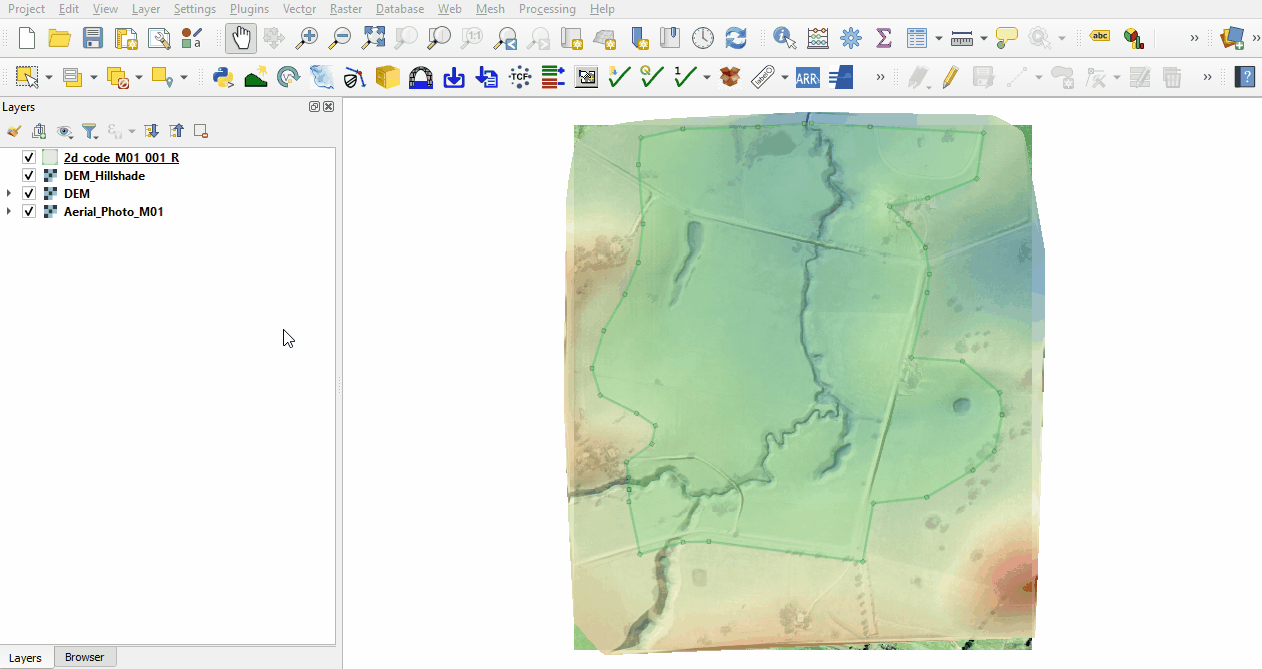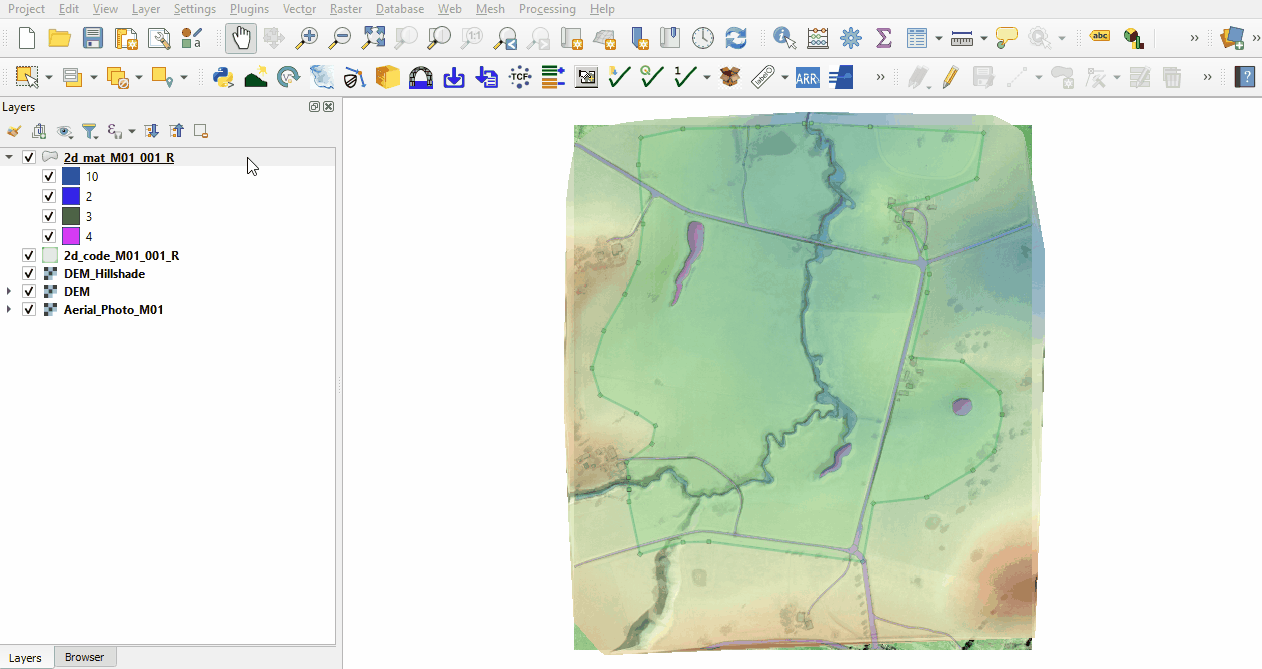Difference between revisions of "Tutorial M01 Materials QGIS GPKG"
Jump to navigation
Jump to search
(→Method) |
|||
| Line 1: | Line 1: | ||
| + | <span style="color:#FF0000"> | ||
| + | <font size = 18>Page Under Construction</font> | ||
| + | </span> | ||
= Introduction = | = Introduction = | ||
QGIS is used to review the spatial definition of material types, the land use areas.<br> | QGIS is used to review the spatial definition of material types, the land use areas.<br> | ||
Revision as of 13:15, 25 May 2023
Page Under Construction
Introduction
QGIS is used to review the spatial definition of material types, the land use areas.
Method
- Within the QGIS Browser Panel, navigate to the Module_01\Tutorial_Data folder.
- Drag the 2d_mat_M01_001_R layer from the 2d_mat_M01_001_R.gpkg and drop into the M01_001.gpkg contained within the Module_01\TUFLOW\model\gis folder.
- Double click on the 2d_mat_M01_001_R layer from within the M01_001.gpkg to open it in QGIS.
- Select ‘Apply TUFLOW Styles to Current Layer’.

- The open pasture coveting most of the study area is not defined, this is the default land use type. Only the areas where the land use differs from the default needs to be defined.
- The material attribute associated with each polygon is an integer value based on the land use.
- Material ID 2: Roads
- Material ID 3: Buildings
- Material ID 4: Ponds and other water
- Material ID 10: Vegetated creek

Conclusion
- The 2d_mat layer was reviewed defining the spatial extents for land use categories.
| Up |
|---|